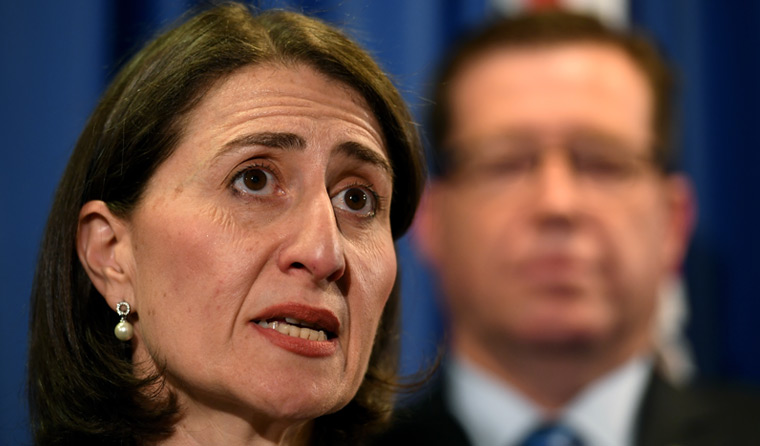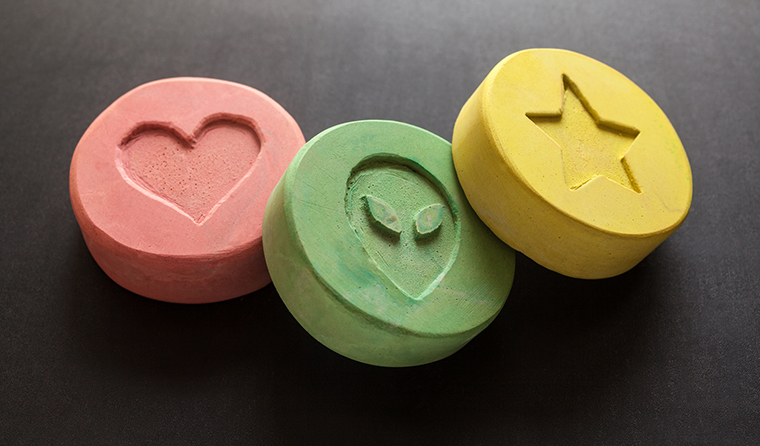News
Hardline approach to pill testing ‘failing’ to save lives
A teenager’s death following a suspected drug overdose on the weekend has sparked further debate about pill testing.
 A 19-year-old man died in hospital after the Knockout Games of Destiny dance party in Sydney on the weekend.
A 19-year-old man died in hospital after the Knockout Games of Destiny dance party in Sydney on the weekend.
‘There is pretty conclusive evidence that people who identify their drugs as being something other than what they expected at music festivals do something other than take those drugs.
‘So if they’re not putting their drugs in their mouth then they’re less likely to overdose.
‘It’s pretty straightforward.’
That is Dr David Caldicott, an emergency physician with a special interest in toxicology, discussing pill testing following this weekend’s death of a teenager from a suspected drug overdose at a Sydney music festival.
In addition to the death of the 19-year-old, three other people were taken to hospital in a critical condition, while a further 13 were taken to hospital for treatment and more than 100 were treated for various conditions during the event.
This follows the deaths of two young people at a music event in Sydney in September.
These events have again raised the question of pill testing.
While NSW Premier Gladys Berejiklian extended her condolences to the teenager’s family following the weekend’s events, she was clear in saying her government would not change its stance on pill testing.
‘Unfortunately we know that pill testing won’t work because it will give people the green light to taking substances which in the end could still kill them,’ she said.
‘I would hate to think that even after something has been tested that somebody dies.’
Ms Berejiklian said she wants young people to have fun without taking illegal substances.
‘This is a serious issue,’ she said. ‘I’m beside myself that young people aren’t getting the message.’
 NSW Premier Gladys Berejiklian has ruled out pill testing, calling it a ‘green light’ to take drugs. (Image: Joel Carrett)
NSW Premier Gladys Berejiklian has ruled out pill testing, calling it a ‘green light’ to take drugs. (Image: Joel Carrett)
Dr Hester Wilson, GP and Chair of the RACGP Addiction Medicine Specific Interests network, said that regardless of whether people like it or not, a significant number of young people will take illicit drugs.
‘I understand the moral concerns some people have, but some people in our community like getting intoxicated and use pills to help them party,’ Dr Wilson previously told newsGP.
‘It’s all very well for us to say, “Don’t take drugs”, but the fact is that they do, and they’re dying.’
Dr Caldicott – who designed a pill-testing trial at Canberra’s Groovin the Moo festival earlier this year – agrees this is a serious issue, but is at odds with Ms Berejiklian’s stance.
He calls the death of the young man this weekend ‘a tragic situation’. However, his emotional response as a parent is a ‘mixture of melancholy and frustration’.
He said research from 2002 has demonstrated that people are less likely to take mixtures of drugs, and to take far fewer drugs, when pill testing is in place.
‘Both of those are independent risk factors for overdose and death,’ he told newsGP.
‘Nothing has changed since then.’
Dr Caldicott said he is particularly frustrated by Ms Berejiklian’s response to the inquiry she called into the issue.
‘What’s really interesting is that she called for an inquiry into this problem with music festivals in New South Wales and specifically refused to take any evidence or advice regarding pill testing,’ he said.
‘She not only refused to implement [any changes], she refused to consider any submission that involved pill testing.’
Leader of the Australian Greens Dr Richard Di Natale agrees with Dr Caldicott, and has called for governments across Australia to urgently adopt pill testing.
‘Going to a party shouldn’t be deadly, and it’s devastating that we face having to make the same plea after every avoidable death,’ he said.
‘No approach can entirely prevent deaths, but we owe it to people to pursue options that actually work.
‘Despite what the Premier would want you to think, strict policing doesn’t stop drug usage, and in fact drives people to riskier drug-taking.’
 Leader of the Australian Greens Dr Richard Di Natale said ‘we owe it to people to pursue options that actually work’ when it comes to an approach to minimising drug-related deaths.
Leader of the Australian Greens Dr Richard Di Natale said ‘we owe it to people to pursue options that actually work’ when it comes to an approach to minimising drug-related deaths.
Federal Health Minister Greg Hunt discussed the issue on ABC Breakfast in Sydney.
‘The advice that I have is there are no safe levels of illicit drugs. And the reason they’re illicit is because they’re not safe,’ he said.
‘And I think that’s the very important thing to understand, that these drugs are not available on the PBS [Pharmaceutical Benefits Scheme] and they’re not available on the approval of what’s called the Therapeutic Goods Administration, which is the safety and quality controller, because they’re not safe.’
But Dr Caldicott said young people are ‘paying no attention to the message of “Just don’t use drugs”.’
With three more major dance parties coming up in Sydney between now and Australia Day in January, Dr Di Natale believes, ‘we must act now if we’re serious about making sure this tragedy isn’t repeated’.
Dr Caldicott also hopes to avoid further tragedy.
‘We’re at the start of a summer season, a season which we know is very dangerous in the global sense,’ he said.
According to Dr Caldicott, the illicit drugs he sees now are also ‘far more dangerous than any we’ve ever had’. He believes pill testing is a vital strategy in reducing deaths and injuries at music festivals.
‘Somebody needs to explain to me how you turn to a parent and tell them that they have lost their child while, at the same time, we have not done everything that we can do to ensure that that outcome didn’t occur,’ he said.
‘As long as we continue to do what we’re doing in Australia in regards to drug policy, we’ll continue to get the same results.’
illicit drugs music festivals pill testing
newsGP weekly poll
Within general practice, do you think there are barriers to providing flu vaccinations? If so, what are they?